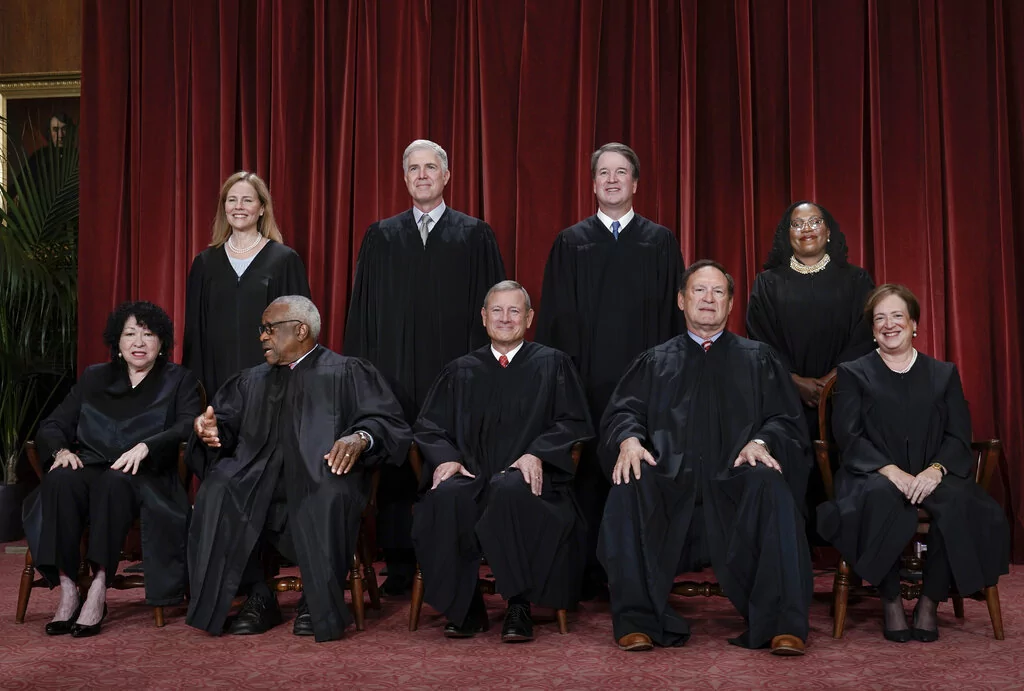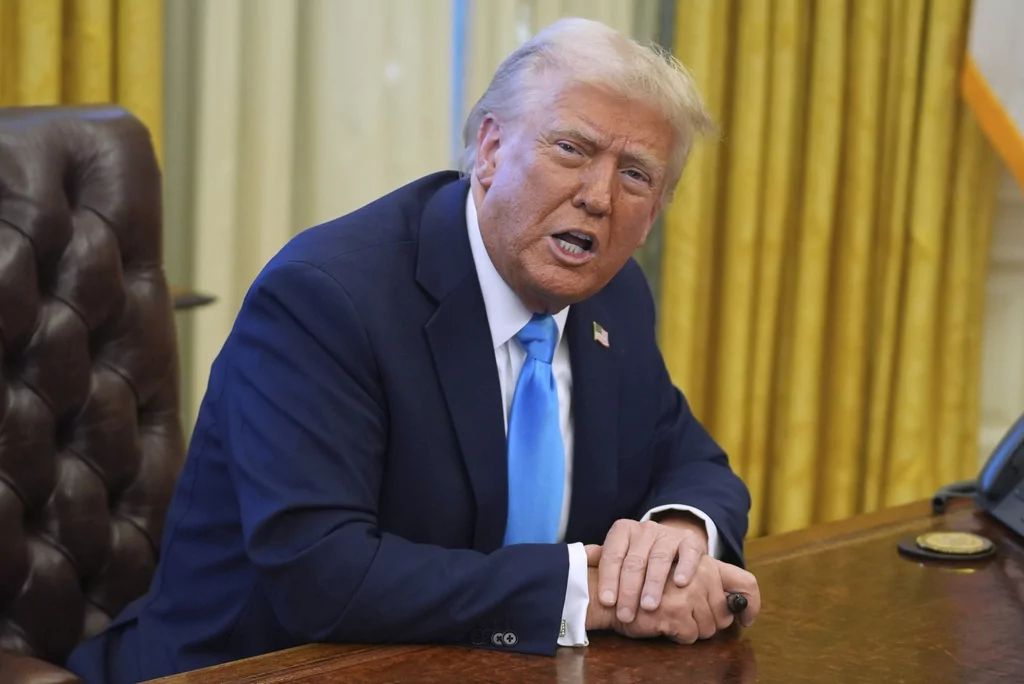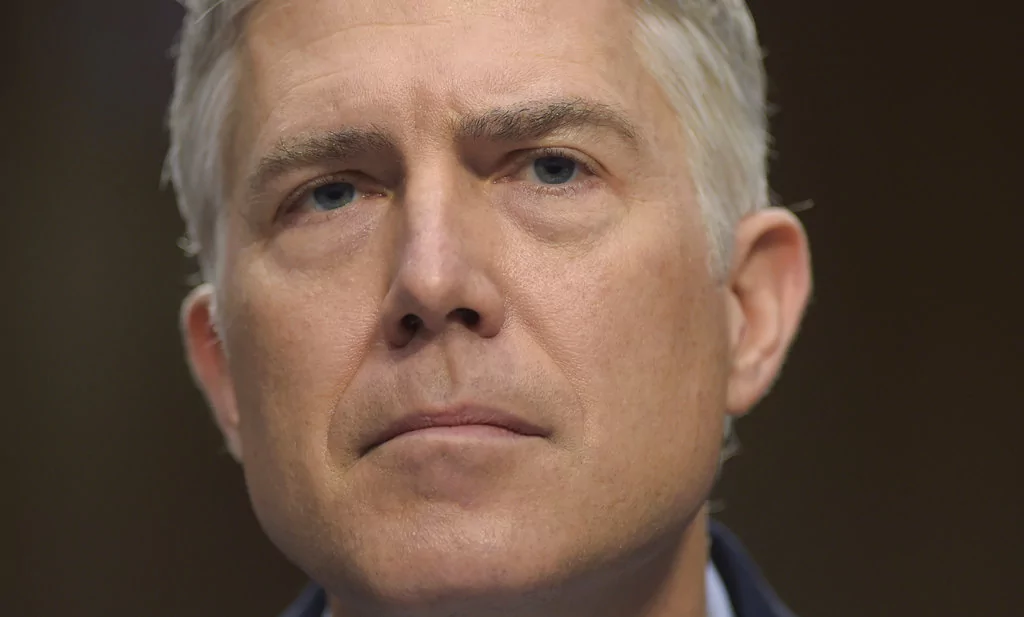The Supreme Court is preparing to wade into one of the most significant aspects of the legal battles raging during the second Trump administration, one that could redefine how far federal judges can go in blocking certain presidential actions.
At issue is a growing use of nationwide injunctions in federal courts across the country. These court orders halt federal policies across all 50 states. National injunctions have hindered President Donald Trump from moving forward with his executive order to curtail birthright citizenship, and the Supreme Court will soon examine those decisions by lower courts.

On Thursday, the justices agreed to hear expedited arguments on May 15 in Trump’s appeal of three lower court rulings that blocked his order. While Trump ultimately seeks to uphold his birthright citizenship order, the major question before the justices centers on whether lower court holds against his plan can be narrowed to apply only to the plaintiff beneficiaries, rather than the current “universal” or national block on the policy.
“This Court should declare that enough is enough before district courts’ burgeoning reliance on universal injunctions becomes further entrenched,” acting Solicitor General Sarah Harris wrote in the emergency filing. She urged the justices to limit the rulings to the individual plaintiffs and jurisdictions involved, which would allow the administration to proceed with its efforts in other jurisdictions.
The trio of cases, consolidated together for one hour of oral arguments in the middle of May, offers the justices a direct opportunity to address growing concerns over judicial overreach.
It also places Trump’s immigration crackdown squarely before a court that has been historically reluctant to limit its own power but now faces pressure from both sides of the political aisle.
Trump’s challenge to birthright citizenship
Trump’s executive order, issued just hours after his inauguration, targets automatic citizenship for children born in the United States to parents who are in the country illegally or on temporary visas. The order asserts that such children are not “subject to the jurisdiction” of the United States, and therefore do not qualify as citizens under the 14th Amendment.

The 14th Amendment, ratified in 1868, guarantees citizenship to “all persons born or naturalized in the United States, and subject to the jurisdiction thereof.” For more than a century, courts have interpreted this clause to mean that virtually anyone born on U.S. soil is a citizen, regardless of parental immigration status.
Civil rights groups and Democratic-led states immediately challenged the order, pointing to Supreme Court precedent, including the 1898 decision in United States v. Wong Kim Ark. That case confirmed birthright citizenship for children born in the U.S. to noncitizen parents, establishing a principle that has remained largely untouched for more than 125 years.
Thomas Wolf, director of democracy initiatives at the liberal Brennan Center for Justice, called the order a direct violation of the Constitution. “If you’re born here, you’re one of us,” he wrote for the Brennan Center for Justice in January. “It doesn’t matter who your parents were.”
Wolf warned that Trump’s order contradicts both the plain language of the 14th Amendment and the long-established legal consensus surrounding it.
Some conservative legal scholars disagree. Hans von Spakovsky of the Heritage Foundation argues that the amendment has been misinterpreted. He argued in a 2018 article that undocumented immigrants do not fall fully under U.S. jurisdiction because they owe allegiance to another country. In his view, their children are not constitutionally entitled to citizenship.
Four separate district courts and three federal appeals courts have kept the Trump policy on hold during litigation, finding it very likely unconstitutional. One court called the order “blatantly unconstitutional.”
The legal fight over injunctions
The more direct legal conflict the justices are undertaking centers on whether a single district judge can block a federal policy for the entire country. The Trump administration argues that universal injunctions go far beyond the role courts are meant to play, which is to resolve disputes between actual parties.

Justice Neil Gorsuch, a Trump appointee, wrote in a 2020 concurring opinion that such injunctions allow plaintiffs to “shop” for favorable judges and force the government to win unanimous support across every circuit just to enforce its laws. “A single successful challenge can stop a policy cold,” he wrote.
That viewpoint is gaining traction as the judiciary faces increasing scrutiny over its role in national policymaking.
The Supreme Court has never clearly defined the limits of nationwide injunctions, but both Republican and Democratic administrations have raised concerns about abuse of the tactic for years, and the complaints from conservatives have been rising as courts have levied 17 national injunctions against Trump’s policies since his January inauguration.
“This is extraordinarily unusual,” Spakovsky said in a recent Heritage Foundation podcast. “In the entire history of the U.S. there has only been … a little over 180 nationwide injunctions ever issued … and a vast majority of the ones recently have been against Donald Trump.”
It is important to underscore that the scope of this eventual ruling, even if the high court grants Trump something close to his desired outcome, would likely not preclude all national injunctions going forward. That is because the presidential action at hand is not reviewable under the Administrative Procedures Act, the law that allows courts to review specific agency decisions.
“The inapplicability of the APA makes these cases particularly good vehicles for considering whether universal relief comports with Article III and traditional principles of equity,” the government wrote in a footnote of its application to the high court.
Still, the Supreme Court has an opportunity to limit national injunctions in other non-APA cases, making the grant for oral arguments important nonetheless.
Another test case for national injunctions looms in the backdrop
Another dispute, Garland v. Texas Top Cop Shop, has drawn attention as a possible future vehicle for resolving the injunction issue.
That case involves the Corporate Transparency Act, a bipartisan anti-money laundering law passed in 2021. A federal judge in Texas struck down the law and barred the government from enforcing it against anyone, not just the plaintiffs in the case.
On Jan. 23, the Supreme Court temporarily lifted the injunction while the U.S. Court of Appeals for the 5th Circuit continues to handle the case.
While the justices declined to take up the case for a merits argument for now, Gorsuch issued a comment in the order that the justices should address the use of nationwide injunctions “definitively.”
“I would, however, go a step further and, as the government suggests, take this case now to resolve definitively the question whether a district court may issue universal injunctive relief,” Gorsuch wrote.
Notably, the appeal in question arose from the former Biden administration’s problems with the lower court injunction, underscoring the nature of bipartisan distaste for national injunctions.
Experts question whether birthright case is the best ‘vehicle’ to rein in national injunctions
Legal experts are divided over whether the birthright citizenship case is the best opportunity for the high court to act.
Jonathan Entin, a law professor at Case Western Reserve University, questioned whether the justices would want to address the injunction issue in a case where every lower court has already ruled against Trump’s position.
“This doesn’t strike me as the best vehicle, I can’t say that the Supreme Court is going to agree with me on that, right? I don’t feel confident in predicting that,” Entin said.
The professor also noted that there are ways in which the justices could signal another future opportunity for them to address the scope of nationwide injunctions in a case where the law is more cut-and-dry, such as the issue with the Top Cop Shop case that rose to the justices’ chambers earlier this year.
High stakes for the presidency
The Supreme Court’s ruling is expected this summer. At a minimum, it could clarify how far district courts can go in blocking certain presidential actions.
SUPREME COURT TO HEAR TRUMP BIRTHRIGHT CITIZENSHIP CASE
It’s also not likely that this will be the last time the effort to curtail birthright citizenship will be weighed by the high court, given the fact that lower courts are still toiling over the thorny 14th Amendment questions as various lawsuits proceed in lower court.
But in the short term, the decision, expected by summer, could set the ground rules for how courtrooms handle many of Trump’s executive decisions for the next four years.














